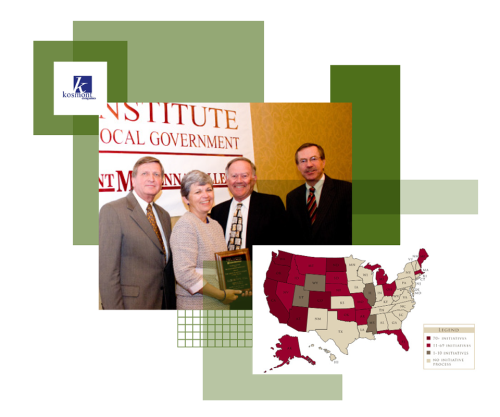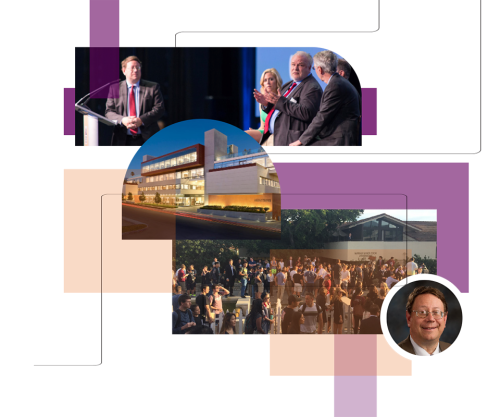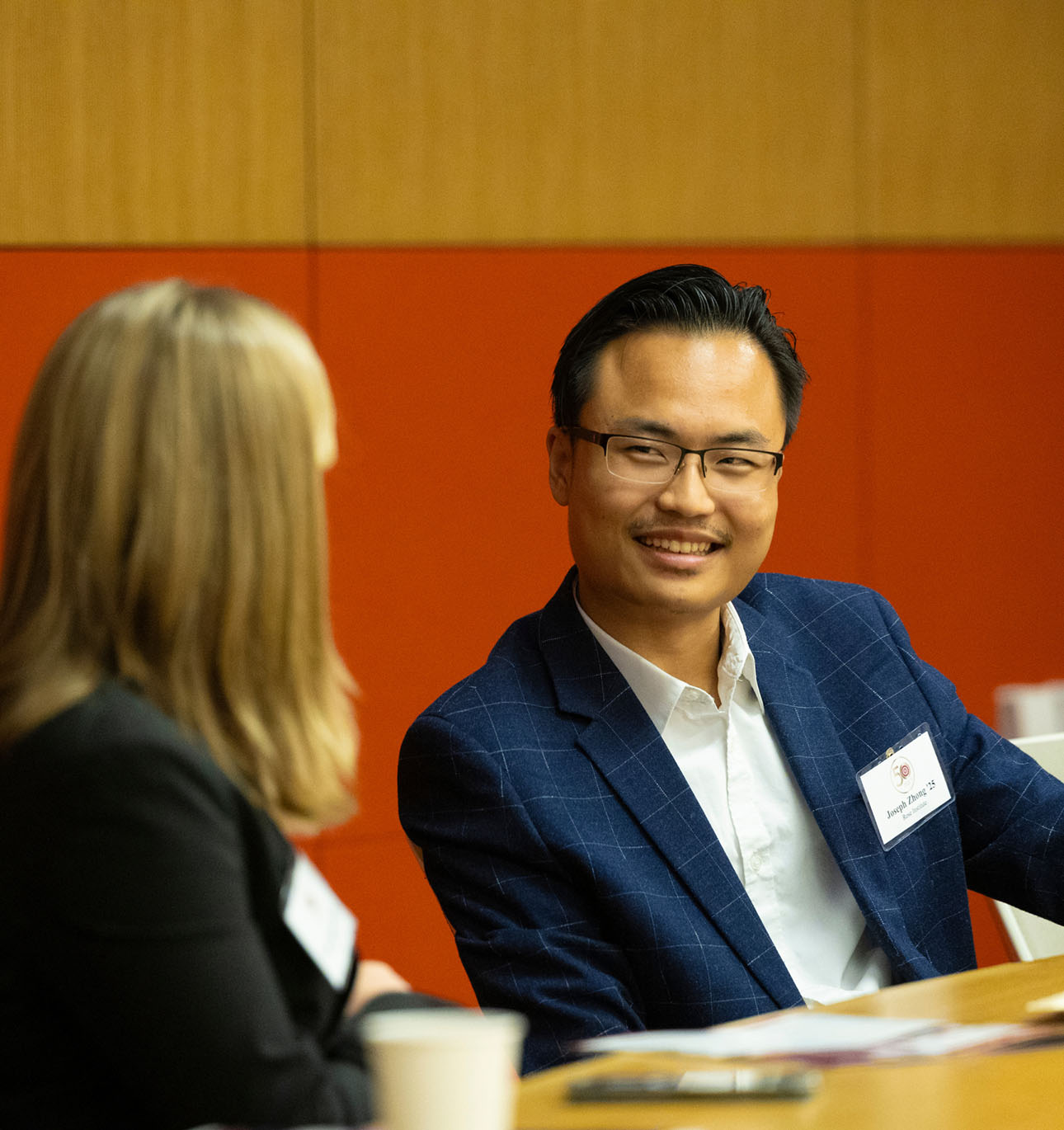About
The mission of the Rose Institute of State and Local Government is to enhance the education of students at CMC, to produce high-quality research, and to promote public understanding of issues of state and local government, politics, and policy, with an emphasis on California.
Overview
The Rose Institute of State and Local Government was founded in 1973 at Claremont McKenna College to provide objective research on the challenges facing state and local governments while maintaining a steady focus on the education and development of its student research assistants.
The Institute seeks to inform public officials, community leaders, the media, and the general public through its databases, polls, reports, informational videos, conferences, and speakers. Under the direction of expert faculty and staff, our students are involved in all aspects of the Institute’s work. Today, more than 450 Rose alumni are using skills they gained at the Rose Institute in leadership positions in government, business, and the professions.
History
When the Rose Institute was founded, CMC was developing a model for research institutes that would provide a structure for faculty and students to pursue research in a way common at major universities but not at liberal arts colleges. The Rose Institute became the second of what is now eleven undergraduate research institutes and centers at CMC, a model that remains distinctive in American higher education.
The Institute was named in honor of its founding donor, Edessa Rose. Born in 1903, Mrs. Rose became one of the few women lawyers of her generation. In 1972, she was named the first female trustee of what was then Claremont Men’s College and enthusiastically supported CMC’s effort to create an institute that focused on the study of state and local government.
The founding vision of the Rose Institute was to produce high-quality, objective, data-driven research on challenges facing state and local governments, and to expand opportunities for undergraduates to pursue professional-level policy research in these areas. The Institute has remained true to that vision, even as the focus of its research has evolved. Early on, the Institute established itself as one of the nation’s leading centers of research on redistricting; over time, it diversified into studies of Southern California’s changing demographics, economics, and governance. Most recently, the Institute has pursued projects in areas including voting and elections, public opinion, city governance, housing policy, federalism, and California’s competitiveness. The Institute has also long maintained a Speaker Series that promotes viewpoint diversity and civil discussion of contested policy issues.
Throughout its history, the Rose Institute’s most important product has been its students. Over the past five decades, the Institute has employed and trained more than 450 undergraduates who have gone on to pursue leadership positions in government, business, and the professions.
Connect with the Rose Institute
The Rose Institute has conducted numerous studies of state and local government institutions, with the goal of promoting good governance. In recent years, we have devoted considerable attention to this area.
The Rose Institute through the decades

1970s
1972 Mrs. Edessa Rose, the Rose Institute’s founding donor becomes CMC’s first female trustee. She is one of the few women lawyers of her generation.
1973 Rose Institute is founded. Alan Heslop is named first director.
1974 The Institute develops the nation’s first comprehensive statewide demographic and political database, and through this work became a national leader in census tracking and the use of Geographic Information System (GIS) technology.
1979 Edessa Rose with President Gerald R. Ford during a visit to CMC.

1980s
1988 Rose Institute conducts its first exploratory studies of the Inland Empire, which later becomes a primary focus of its research.

1990s
1991 The Institute played a significant part in the California redistricting.
1994 Following a lengthy self-study, the Rose Institute Board of Governors approves a new mission statement calling for the Institute to shift its focus to four areas of Southern California (the San Gabriel Valley, the Inland Empire, Orange County, and San Diego) and to train students in the use of demographic analysis, survey research, and fiscal analysis.

2000s
2002 Initial Kosmont-Rose Institute Cost of Doing Business Survey published. The Institute will continue to produce the Kosmont-Rose Institute Survey regularly for more than two decades.
2003 The Institute celebrated its 30th anniversary.
2008 Established California’s Independent Citizens Redistricting Commission.

2010s
2011 Rose Institute creates a new Athenaeum Speaker Series. Rose-sponsored speakers will include Governors Tom Ridge, Susana Martinez, and Steve Bullock ’88; Representatives Kevin McCarthy, Tom Campbell, and Lois Capps; Assembly Speakers Robert Hertzberg and John Perez; and California Supreme Court Justice Mariano Florentino Cuéllar; as well as other government officials, academics, and journalists from across the political and ideological spectrum.
2013 Rose Institute receives donation of archive from retired House Rules Committee Chairman David Dreier ’75 and assists with creation of Dreier Roundtable at CMC.
2016 Rose Institute publishes study on the “quiet revolution” of California city governments’ transition to district based elections in response to the California Voting Rights Act.

2020s
2022 First CMC-Rose Institute national poll is conducted in collaboration with YouGov. Poll produces two reports, Red States vs. Blue States and Battleground Pennsylvania.
2023 Rose Institute celebrates its 50th Anniversary.
The Rose Review
The Rose Review is released once per semester and spotlights the Rose Institute’s current student researchers as well as the Institute’s most recent work.



